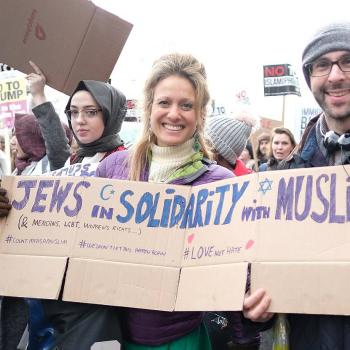
We’re halfway through Ramadan mashaAllah. I’m both happy to be able to gain some benefit from the month, despite my illness, yet sad at how fast it’s passing. This year it has been a major challenge for me to stay connected with activities that will enhance my faith and keep me close to my community. For some reason I’ve been having a lot of trouble keeping my bipolar and anxiety symptoms under control. This has dramatically impacted how I’m observing the month.
It can be demoralizing to feel mentally unwell during such a blessed and peaceful time. You often wonder what you’re doing incorrectly that’s preventing you from using your spirituality to help you weather hardships. This alone can result in harmful negative thinking and self-loathing; which directly affects your faith. A major struggle has been not letting self-deprecating thoughts about my situation discourage me from doing the best I can religiously, especially when I feel like giving up.
Once someone asked me if I could use specific prayers and verses from the Quran to help me begin to heal mentally and emotionally. On paper I understand why this seems like an a simple solution. But what I explained is that when your judgment and thinking are clouded by mental instability, you often lack the clarity needed with which to allow your belief system to help you. For example when I’m faced with racing thoughts and paranoia, I’m not able to fully grasp the beauty and wisdom in things such as duas and ayat of Quran. I’m frankly not in a place where I am able to receive benefit from (or even comprehend) what I’m reading; much less rely on these things for solace. And if one isn’t careful, this can cause further feelings of religious estrangement, sending you into a spiral of hopelessness, fear and despair.
What I tell people now is that when I’m sick, my first response is to make sure I’m taking my medicines as prescribed, and sleeping & eating properly. Once I’m stable, I can then tap into the spiritual resources available to me and reconnect with my faith in a meaningful manner. Talking with my doctors, therapist and also my Imam has assisted me in using this approach to my overall wellness. It helps me not feel like a failure as a Muslim to understand the roles that both medicine and my religious practice play in my life. I’m extremely grateful to deal with clinicians who respect and understand this delicate balance.
Though this has been a trying period, I’m happy to have options as to how I can observe Ramadan while I’m getting back on track. The internet is such a useful tool for those of us dealing with disabilities that may impact our capacity to get out and interact with others. For the past few years I’ve taken advantage of live broadcasts of taraweeh prayers during Ramadan. This has been so helpful for when I’m unable to leave my home.
I’ve mentioned this before, but listening to prayers and talks online has been such a lifeline. I feel like my illness doesn’t have to keep me from doing what I love anymore. If I get to the end of Ramadan, having spent time with the Quran and enhancing my trust in Allah, it will be a big victory for me. Even a small, personal goal such as this helps me approach my mental health without trepidation or anger. And for me, this is the way I want to tap into my spirituality as someone with illnesses like mine.
In the past, religion was used by some people (not intentionally, but damaging nonetheless) to stifle my feelings toward this life test and shame me into silence altogether. Or to make me feel unworthy of calling myself a Muslim. None of that helped me recover mentally, nor did my faith weather this tactic at the time. I’m thankful that I’ve been able to grow with my mental health issues in a way that no longer compromises my dignity, religiously or otherwise. This is a true expression of my values and belief system.















